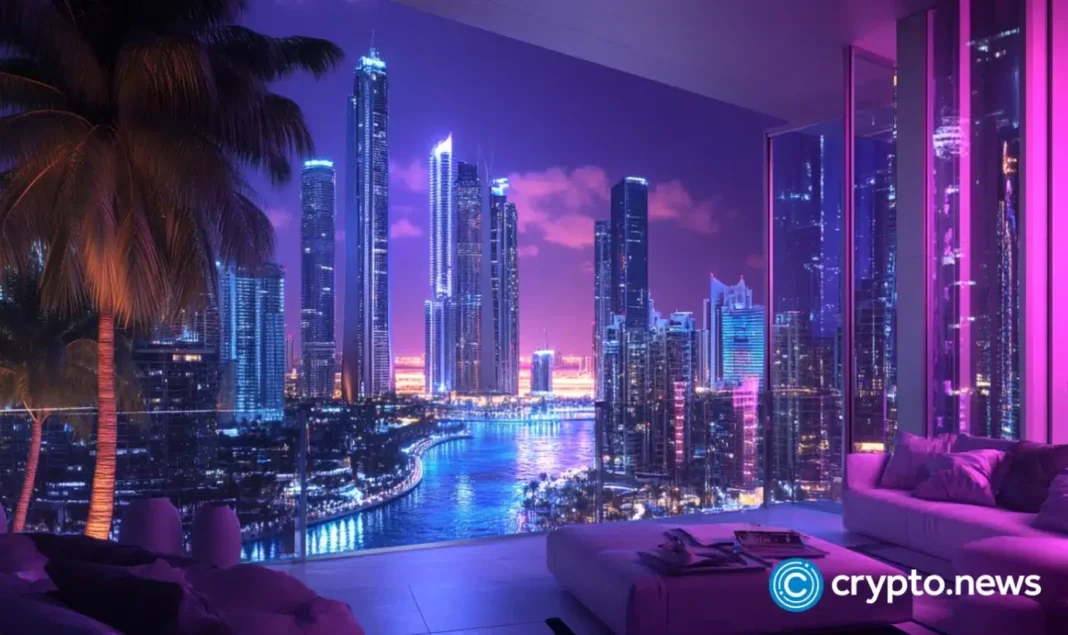Dubai Real Estate Goes Digital: Is Tokenization the Future of Property Ownership or Just a Trend?
Table of Contents
- Prypco Mint: A Game-Changer for Dubai Property Access
- What Tokenization Really Means for Real Estate
- The Global Push Toward Tokenized Property
- Can You Earn Real Returns from Fractional Dubai Real Estate?
- Final Thoughts: Disruption or Distraction?
Prypco Mint: A Game-Changer for Dubai Property Access
Dubai has never been short on innovation, and its real estate sector is now embracing one of the boldest ideas yet—fractional ownership through blockchain.
Launched on May 25 by the Dubai Land Department, Prypco Mint is a first-of-its-kind platform built on the XRP Ledger, enabling UAE residents to invest in small, legally recognized fractions of Dubai properties starting from just AED 2,000 (around $545).
This initiative—part of Dubai’s long-term Real Estate Sector Strategy 2033—plans to tokenize up to $16 billion in assets, bringing in a new era where owning a piece of prime Dubai real estate isn’t reserved for millionaires.
More than just a tech experiment, Prypco Mint offers real legal rights attached to each token—unlike many international platforms still operating in regulatory grey zones.
Built in partnership with UK fintech Ctrl Alt and governed under Dubai’s Virtual Assets Regulatory Authority, the pilot phase is now live for UAE ID holders, with international access expected by late 2026.
What Tokenization Really Means for Real Estate
Dubai’s property market has reached record highs in both transaction volume and pricing. In 2024 alone, the sector saw over AED 761 billion ($205B) in deals, while premium zones like Dubai Marina have seen a 12% price hike year-on-year.
A full apartment in these districts? Expect to spend AED 5 million ($1.36 million).
Tokenization flips the script. It breaks down property ownership into smaller tradable shares, allowing investors to get in with much lower capital. A 1% stake in a premium unit might now cost around AED 50,000 ($13,600), or you can start with the minimum AED 2,000 ($545).
Beyond affordability, tokenized transactions slash overheads. Traditional property deals in Dubai often come with 10–15% in fees and long closing cycles. With Prypco Mint’s blockchain setup, transaction fees drop to 0.5% and settlements complete in under 10 minutes.
Smart contracts also handle revenue distribution and title issuance, streamlining everything from legal ownership to rental income—automatically.
The Global Push Toward Tokenized Property
Dubai isn’t alone. Across the Atlantic, U.S.-based platforms like RealT and Lofty are also democratizing real estate.
According to ScienceSoft’s 2025 findings, RealT has tokenized over 970 properties, with 88% of users investing under $5,000—a clear signal that retail demand is strong.
Still, challenges remain. Most tokenized assets are locked within their original platforms, making resale or transfer between networks difficult. Global initiatives from SWIFT, Chainlink, Citi, and BNY Mellon are working on this issue, aiming to establish a universal layer for seamless asset movement.
New investment models are also emerging. Platforms like Parcl allow investors to trade based on real estate price indices rather than direct ownership, introducing entirely new forms of asset exposure.
As interest expands, the focus is shifting from luxury and residential sectors to alternative assets like data centers, vacation homes, and tokenized funds.
The GCC region is poised to play a leading role, thanks to early regulatory support in markets like Dubai and Saudi Arabia.
Can You Earn Real Returns from Fractional Dubai Real Estate?
According to Deloitte, tokenized real estate is on track to grow from $300 billion in 2024 to $4 trillion by 2035, and Dubai is aiming to grab a significant slice of that.
So, what kind of returns can investors expect?
- Rental yields in top Dubai neighborhoods range between 6–8% annually.
- A $10,000 investment in tokenized shares could generate $600–$800 per year, with payments distributed automatically via smart contracts.
- Real estate in Dubai has also seen annual appreciation of 5–8%, depending on location and asset type.
Platforms like Prypco Mint, RealT, and Securitize are bundling properties into diversified tokenized portfolios, offering exposure to different asset classes under one roof.
But it’s not all upside.
- Liquidity remains limited—secondary markets are still maturing.
- Volatility risks tied to crypto infrastructure can affect asset value.
- Legal clarity varies—with tax treatment, investor rights, and ownership status still evolving across jurisdictions.
To navigate this new landscape, investors need to assess platform fees (typically 1–3%), exit strategies, revenue structures, and overall platform reliability before jumping in.
Final Thoughts: Disruption or Distraction?
Tokenized real estate in Dubai may not redefine property ownership overnight, but it’s reshaping who gets access and how.
Prypco Mint doesn’t make homes cheaper—but it makes them accessible. Whether this is a democratization of real estate or simply a digital repackaging remains to be seen.
What’s clear is that blockchain is no longer just a buzzword in Dubai’s property market. It’s part of a broader shift toward efficiency, inclusion, and innovation—one token at a time.


